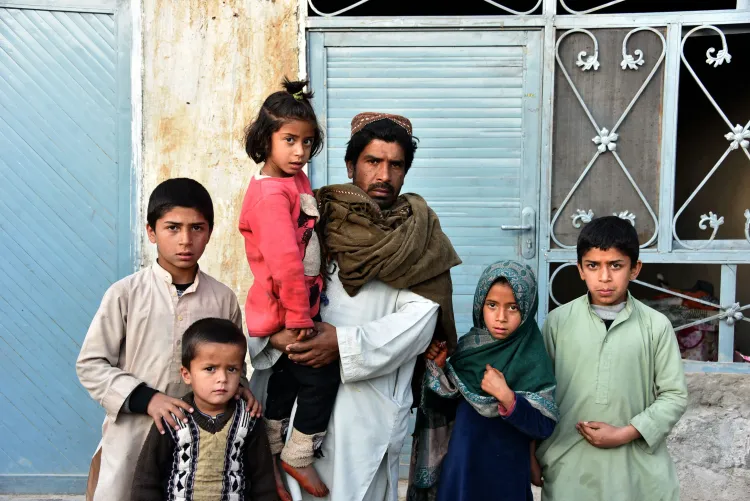Is Iran Really Planning to Deport Two Million Undocumented Afghan Migrants?

Synopsis
Key Takeaways
- Iran plans to deport two million undocumented Afghan migrants.
- Process will adhere to legal procedures with dignity.
- Concerns raised by humanitarian organizations regarding potential crises.
- UNHCR calls for urgent aid to support Afghan returnees.
- Majority expected to exit through Khorasan Razavi border.
Kabul, Aug 18 (NationPress) With escalating regional pressures regarding refugees, Iran is set to deport approximately two million undocumented Afghan migrants, according to statements made by the authorities in Tehran on Monday. They have guaranteed that the repatriation will adhere to legal frameworks and be conducted with dignity.
Iran's Interior Minister, Eskandar Momeni, announced the initiation of a new program aimed at sending back around two million undocumented Afghans to their country of origin with "dignity and respect," as reported by the Afghan news outlet Khaama Press.
During a press conference in Mashhad on Monday, Momeni indicated that the first phase of the operation will target undocumented Afghans who entered Iran without legal documentation. He noted that there are currently over six million Afghan nationals residing in Iran, highlighting the need for both national and international collaboration to manage such a substantial population.
Momeni emphasized that this initiative should not be perceived as anti-immigrant, stating that every country has its own laws regulating foreign nationals. He added that the National Migration Organisation will supervise the process, ensuring that all returnees are sent back to Afghanistan in accordance with legal protocols and with respect for human dignity.
The minister stated that the majority of Afghan migrants are expected to exit through the Khorasan Razavi border, a long-standing crossing point between Iran and Afghanistan. This announcement comes as Pakistan is preparing to launch its own repatriation initiative for Afghan migrants, scheduled to commence in September.
Humanitarian organizations have voiced concerns regarding the mass deportations from Iran and Pakistan, warning that it could lead to a significant crisis, as returning individuals face poverty, unemployment, and restrictions under Taliban governance.
On August 17, the United Nations High Commissioner for Refugees (UNHCR) cautioned that its resources are dwindling as 2.2 million Afghans have returned from Pakistan and Iran. The UNHCR has called for urgent assistance amid the ongoing humanitarian crisis and worsening poverty.
The UNHCR further warned of its budget constraints due to the mass expulsion of Afghan refugees from Iran and Pakistan. In a statement released on August 17, the UNHCR urged for immediate international aid to sustain its operations aiding Afghan returnees. Since the beginning of 2025, more than 2.2 million Afghans have been deported from Iran and Pakistan, according to UNHCR reports. The UN also indicated that poverty and unemployment in Afghanistan are sharply increasing, with over half of the populace relying on humanitarian aid for survival.










